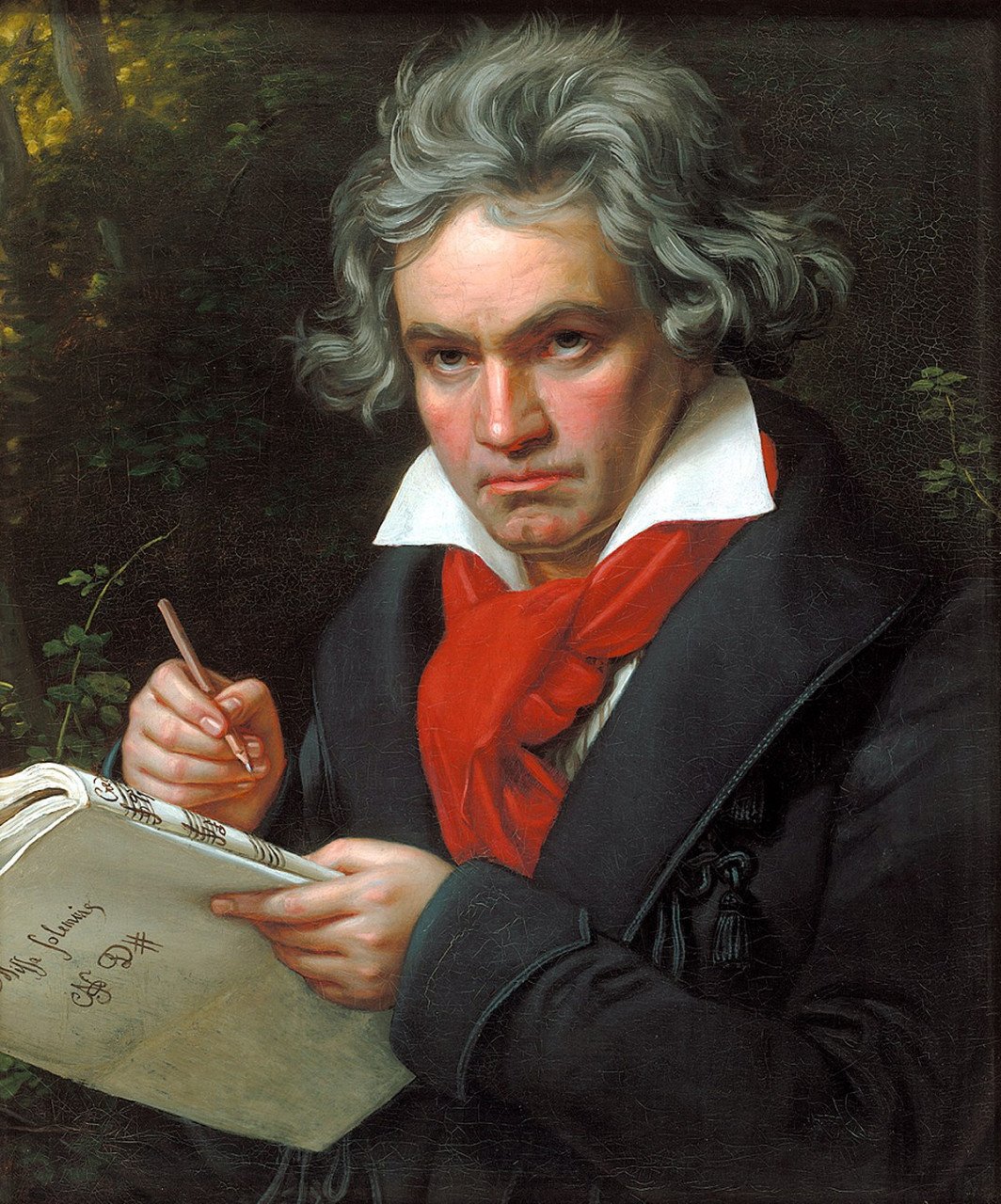Beethoven conquered deafness through Music
Ludwig van Beethoven is one of the most renowned composers of classical music. He composed 9 symphonies and many other musical works, which remain popular to this day. The legacy of Beethoven's work extends beyond the music he wrote, his life story is also an inspiring tale of perseverance despite incredible adversity. As the composer was slowly losing his hearing throughout his adult life, he continued to compose and create stunning and revolutionary works of music. To better understand Beethoven's work, it is essential to learn about his hearing loss and how it impacted and changed his compositions.
Beginning in his mid-twenties, Beethoven started to experience health problems that slowly began to rob him of his hearing. His hearing slowly worsened and by the time he was in his early thirties, was completely gone. It is likely that he suffered from otosclerosis, a condition that results in a gradual hearing loss caused by the buildup of bone in the middle ear. By 1818, he had become completely deaf, resulting in debilitating social and psychological damage.
Despite his severe disability, Beethoven's hearing loss did little to detract from his artistic output. In fact, it appears to have fertilized creativity in the moment he realized his hearing was declining and his already prolific output changed significantly, as in his personal and musical evolution all of a sudden there was time for much, much more introspection. Notably, Beethoven's later works are seen as bold and inventive and largely credited to the effect of his hearing loss. Beethoven was a master at incorporating dynamics, tempo and melodies to capture moods and emotions.
The most notable example of Beethoven's ability to bridge his hearing difficulties with the power of his music is seen in his Ninth Symphony. Beethoven dedicated much of his life to the creation of this masterpiece, and it is now seen as an audio representation of many of his biggest challenges. The Ninth Symphony utilized innovative techniques that included the use of a choir, which was incredibly unique for a symphony at the time. The symphony is also notable for its powerful and deafening decibel level. It is as if Beethoven was attempting to break through the sound barrier created by his hearing loss and express his innermost emotions and world view.
Perhaps the greatest result of Beethoven's deafness was his burgeoning passion for the new piano composition methods he was exploring. Using a device similar to today's modern hearing aid, Beethoven was able to play on a keyboard and compare the desired sound to the sound he heard from a loudspeaker, which was then fed back to the instrument. This remarkable device allowed him to tap into a new form of composing, composing for his own personal listening experience rather than relying on the audience.
Throughout his life, Beethoven's hearing loss had a profound effect on his work and his overall success as a musician. Despite the debilitating nature of his condition, Beethoven was able to persevere and create music that remains acclaimed and timeless. His story demonstrates how with strength, creativity, and courage, even the most daunting challenges can be overcome.
Beethoven Compositions while experiencing deafness:
1. Piano Sonata No. 30 in E Major, Op. 109 (1820)
2. String Quartet No. 13 in B-flat Major, Op. 130 (1825)
3. String Quartet No. 16 in F Major, Op. 135 (1826)
4. Symphony No. 9 in D Minor, Op. 125 (1824)
5. String Quartet No. 12 in E-flat Major, Op. 127 (1825)
6. Piano Sonata No. 31 in A-flat Major, Op. 110 (1821)
7. Mass in D Major, Op. 123 (1823)
8. Diabelli Variations, Op. 120 (1823)
9. Concert Ricercata in F Major, WoO 46 (1820–21)
10. Piano Sonata No. 29 in B-flat Major, Op. 106 (1818)
When you subscribe to the blog, we will send you an e-mail when there are new updates on the site so you wouldn't miss them.


